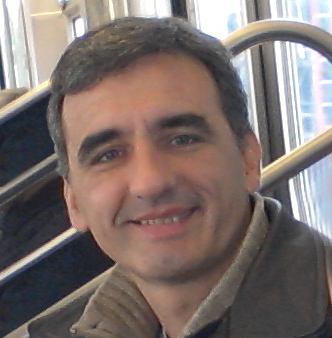Luis María Pérez-Cuesta, Ph.D.

- Title
- Postdoctoral Fellow
- Department
- Department of Molecular Neurobiology
- Institution
- New York University
- Address
-
540 First Avenue
Floor 5, Lab 4 - City, State, ZIP
- New York, NY 10016
- Country
- United States
- Phone
- (347) 247-1863
- [email protected]
- Website
- http://saturn.med.nyu.edu/research/mn/ganlab

- Research field
- Neuroscience
- Award year
- 2012
- Country of origin
- Argentina
- Mentor name
- Dr. Wenbiao Gan
Research
Memories from behavioral experiences initially reside in the nervous system in a labile state during which they are susceptible to modulation. During a time course of hours they are gradually stabilized through a process called consolidation to form long-term memories. Contrary to a century-lasting belief, it is now known that a consolidated memory can be rendered labile again upon reactivation by a reminder, requiring a reconsolidation process to be stabilized again. It is currently proposed that the functionality of this labilization-reconsolidation process is to open a new window of opportunity to reshape the original memory trace according to the new behavioral experience. However, such modifications in the original memory trace remain difficult to disclose with most of the current experimental approaches. Studies on structural plasticity in vivo offer the unique possibility to overcome this constraint and address this problem since they allow us to identify a synaptic structural correlate of the memory trace and track it over prolonged periods of time to evaluate whether and how new experiences re-shape the original memory trace. Our aim is to determine how behavioral experiences (reminders) that induce the labilization and reconsolidation of established long-term memories affect synaptic structural changes induced by the original learning, and whether the persistence of these structures upon the reminder presentation becomes dependent on reconsolidation mechanisms. Memory reconsolidation is a phenomenon under intense study, not only because of its great theoretical interest, but also due to its clinical importance in the treatment of memory-related pathologies, such as post-traumatic stress disorders and addictions.